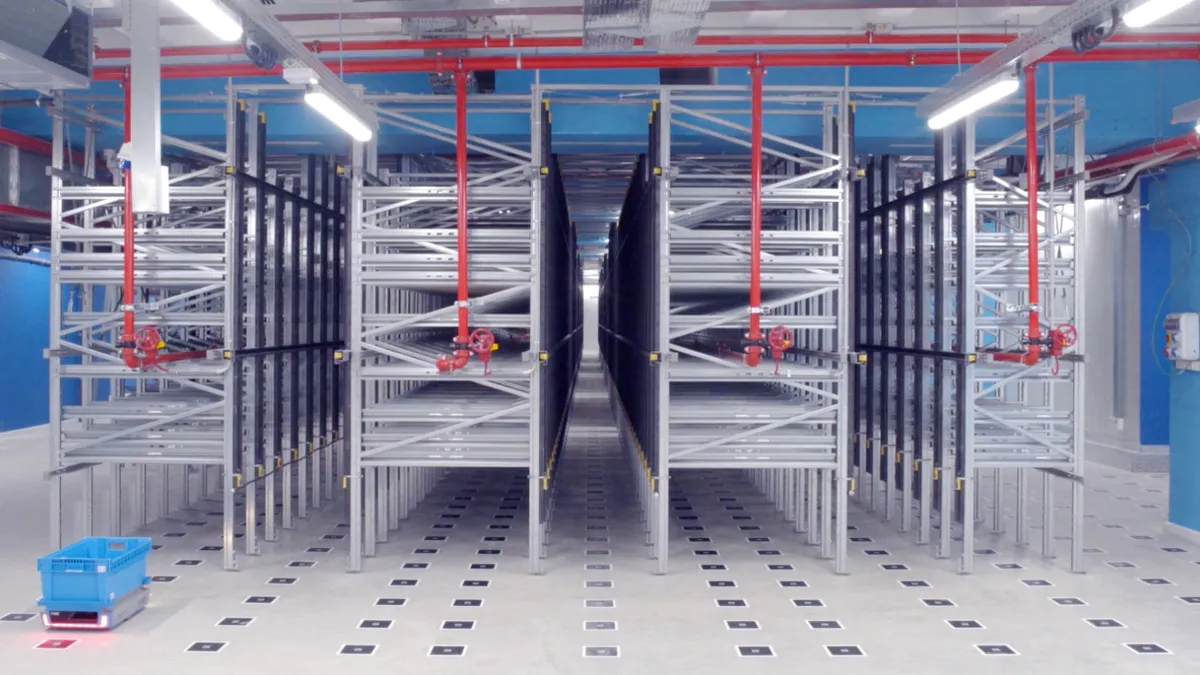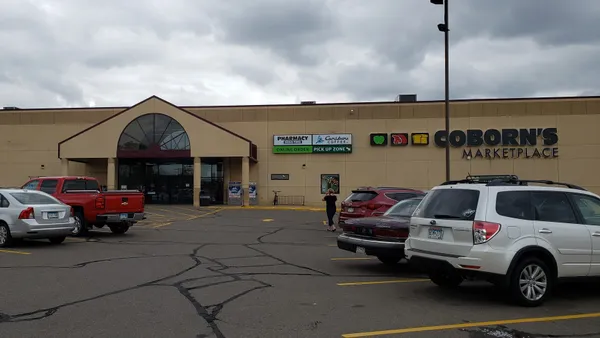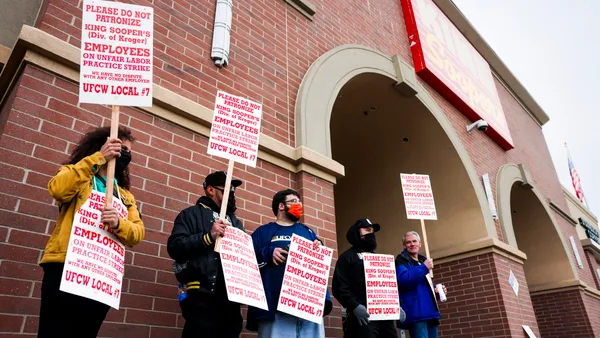Dive Brief:
- Micro-fulfillment company Fabric has raised $110 million in Series B funding, according to a press announcement. Corner Ventures led the funding round along with several other firms including Temasek and the Canada Pension Plan Investment Board, bringing total funding to date for Fabric — formerly Commonsense Robotics — to $136 million.
- Fabric said it will use the funding to "rapidly expand" across the U.S. and build out its support and engineering teams. Steve Hornyak, the firm’s chief commercial officer, told Grocery Dive it plans to announce partnerships with three to four grocery chains by the end of next year.
- The company, which builds micro-fulfillment centers for grocery and non-grocery retailers, has 14 sites under contract in several U.S. cities. Its first U.S. fulfillment site, a multi-tenant unit under construction in New York City, will open early next year.
Dive Insight:
Fabric recently underwent a major rebranding and has yet to plant a grocery micro-fulfillment center in the U.S. But Hornyak said the firm is positioned right where it needs to be.
"[Micro-fulfillment] is a very big business, and we don’t have to capture all of it to succeed," he told Grocery Dive. "You’re going to see a lot of pent-up movement from us."
Hornyak estimates grocers will spend roughly $100 billion on micro-fulfillment over the next five years. That means thousands of automated, pint-sized warehouses dotting the U.S., serving roughly one quarter to one-third of all food retail stores.
For Fabric, the exponential growth curve calls for roughly 10 micro-centers in production next year, followed by 100 or so in 2021. Within five years, the company aims to have a thousand micro-fulfillment warehouses up and running.
Judging by independent research, these numbers may not be too far off the mark. A recent analysis from investment firm Jefferies concluded that micro-fulfillment eliminates more than 75% of costs associated with manual order picking and represents "the most viable/economical answer to online fulfillment." The firm notes automated micro-sheds are quicker to build than centralized warehouses, can often utilize existing assets and are typically located closer to consumers’ homes, making delivery economics more favorable.
Earlier this month, Meijer announced it will soon pilot a micro-fulfillment center with logistics firm Dematic. The company joins several other retailers, including Wakefern, Ahold Delhaize, Albertsons and Walmart, that have begun piloting the technology.
Fabric currently operates a 6,000-square-foot micro-center in Tel Aviv that fulfills around 600 orders per day for local grocer Super-Pharm, a sister chain to Canada's Shoppers Drug Mart. Hornyak said Fabric can build facilities ranging from 5,000-square feet up to 30,000 square feet, either adjacent to a store or as a standalone dark store. Build-out cost ranges from $2 million up to around $7 million depending on the size of the location, he said.
Hornyak said Fabric’s revenue model is tied to grocers’ ongoing sales performance. The company "breaks even" on the construction cost, then charges a regular platform software fee as well as a transactional fee. Fabric owns all of the hardware and software it operates, Hornyak said.
"Grocery stores want to keep their op ex low and they don’t mind having high cap ex because they can bury it," he explained.
Currently, Fabric can build a micro-fulfillment center in 100 days, but Hornyak said the firm would like to cut that down to just 30 days through operational improvements.













